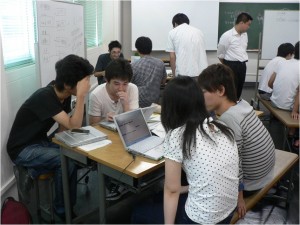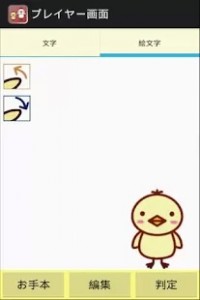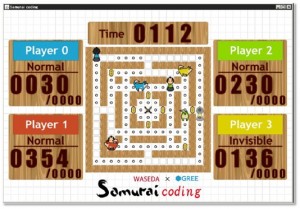We are conducting researches on engineering education, especially information systems development and programming education from the viewpoint of educational environments, educational effects, and team composition.
Team Characteristics for Maximizing the Educational Effectiveness
 In practical lectures on software intensive business systems, we do not yet have an established method for determining what kind of personal characteristics and team compositions are most beneficial to obtaining the maximal educational effectiveness. Here, we propose a framework for analyzing the effects of personal characteristics of team members on educational effectiveness. We also apply the framework to an actual practical lecture. As a result, we find that it is better for a team to have members with a similar degree of tendency of conservative for acquiring more knowledge and skills and the team members have similar characteristics of progressive or conservative. It is expected that in similar practical lectures, we can also obtain the desired educational effectiveness if we can compose a team with the suitable characteristics as based on our findings.
In practical lectures on software intensive business systems, we do not yet have an established method for determining what kind of personal characteristics and team compositions are most beneficial to obtaining the maximal educational effectiveness. Here, we propose a framework for analyzing the effects of personal characteristics of team members on educational effectiveness. We also apply the framework to an actual practical lecture. As a result, we find that it is better for a team to have members with a similar degree of tendency of conservative for acquiring more knowledge and skills and the team members have similar characteristics of progressive or conservative. It is expected that in similar practical lectures, we can also obtain the desired educational effectiveness if we can compose a team with the suitable characteristics as based on our findings.
- Shota Inaga, Hironori Washizaki, Yusuke Yoshida, Kazuhiko Kakehi, Yoshiaki Fukazawa, Shoso Yamato, Masashi Okubo, Teruhiko Kume, Manabu Tamaki and Toshikazu Kanou, “Team Characteristics for Maximizing the Educational Effectiveness of Practical Lectures on Software Intensive Systems Development,” Proceedings of 26th IEEE-CS Conference on Software Engineering Education and Training (CSEET), pp.XX-YY, San Francisco, May 19-21, 2013.(PDF)
- 鷲崎弘宜, 吉田裕介, 筧捷彦, 深澤良彰, 山戸昭三, 大久保雅司, 粂照彦, 玉木学, 加納寿一, “情報システム開発の実践的講座におけるチーム構成と教育効果の関係”, プロジェクトマネジメント学会 春季研究発表大会, 2012.(PDF)
- 伊永祥太, 鷲崎弘宜, 吉田裕介, 筧捷彦, 深澤良彰, 山戸昭三, 大久保雅司, 玉木学, “情報システム開発の実践的講座におけるチーム構成と教育効果の関係”, 工学教育, Vol.61, No.5, pp.88-93, 日本工学教育協会, 2013. (PDF, 工学教育2013.pdf)
- Yusuke Yamada, Shota Inaga, Hironori Washizaki, Katsuhiko Kakehi, Yoshiaki Fukazawa, Shoso Yamato, Masashi Okubo, Teruhiko Kume, Manabu Tamaki, “The Impacts of Personal Characteristic on Educational Effectiveness in controlled-Project Based Learning on Software Intensive Systems Development,” Proceedings of the 27th Conference on Software Engineering Education and Training (CSEE&T 2014), pp.XX-YY, Alpen-Adria Universitat Klagenfurt, Austria, April 23-25, 2014. (to appear) (CSEE&T2014ver34.pdf)
Learning System for Computational Thinking
 Computational thinking is one of the most important skills for using computers. Most existing learning environments for computational thinking work only on desktop or laptop computers although the popularity of smartphones has rapidly been growing. Moreover, Most existing programming languages are based on English. However, Japanese students tend to not like such languages due to English. We propose a gamified learning system using an appealing user interface with a novel icon-based non-verbal programming language. Our system works on smartphones with which many Japanese teenager students are more familiar than PCs. Our system uses an appealing interface and icons to motivate university students to learn programming through playing. We applied an appealing interface which a female student designs for other female students into our system, and then, conducted an experiment with 16 female students from Waseda University in Tokyo, Japan to evaluate our system. We confirmed our system encouraged and motivated the students to learn programming.
Computational thinking is one of the most important skills for using computers. Most existing learning environments for computational thinking work only on desktop or laptop computers although the popularity of smartphones has rapidly been growing. Moreover, Most existing programming languages are based on English. However, Japanese students tend to not like such languages due to English. We propose a gamified learning system using an appealing user interface with a novel icon-based non-verbal programming language. Our system works on smartphones with which many Japanese teenager students are more familiar than PCs. Our system uses an appealing interface and icons to motivate university students to learn programming through playing. We applied an appealing interface which a female student designs for other female students into our system, and then, conducted an experiment with 16 female students from Waseda University in Tokyo, Japan to evaluate our system. We confirmed our system encouraged and motivated the students to learn programming.
- Kazunori Sakamoto, Koichi Takano, Hironori Washizaki, Yoshiaki Fukazawa, “Learning System for Computational Thinking using Appealing User Interface with Icon-Based Programming Language on Smartphones,” Proceedings of the 21st International Conference on Computers in Education (ICCE 2013), pp.XX-YY, November 18-22, Grand Inna Bali Beach Hotel, Denpasar Bali, Indonesia, 2013. (short paper)(PDF)
- まねっこダンス: 未学習者向けのプログラミング超入門Androidアプリ
Contest for Learning Programming
 An artificial intelligence programming contest with game software is one of the most effective way of learning programming. Contestants can spontaneously learn programming to win in such contests. Although our previous work helps to hold artificial intelligence programming contests, its effectiveness is limited owing to an insufficient requirement analysis and uses of an unrefined design pattern. In this paper, we report on ACM JavaChallenge 2012, that is an artificial intelligence programming contest. we elicit requirements on a contest with a goal-oriented requirements analysis and extend the state design pattern using Scala to hold JavaChallenge 2012. We evaluate JavaChallenge 2012 very highly by questionnaire investigation.
An artificial intelligence programming contest with game software is one of the most effective way of learning programming. Contestants can spontaneously learn programming to win in such contests. Although our previous work helps to hold artificial intelligence programming contests, its effectiveness is limited owing to an insufficient requirement analysis and uses of an unrefined design pattern. In this paper, we report on ACM JavaChallenge 2012, that is an artificial intelligence programming contest. we elicit requirements on a contest with a goal-oriented requirements analysis and extend the state design pattern using Scala to hold JavaChallenge 2012. We evaluate JavaChallenge 2012 very highly by questionnaire investigation.
- Kazunori Sakamoto, Hiroaki Hosono, Seiji Sato, Hironori Washizaki, Yoshiaki Fukazawa, “Goal-Oriented Requirements Analysis and an Extended Design Pattern using Scala for Artificial Intelligence Programming Contests,” Proceedings of 3rd International Workshop on Games and Software Engineering (GAS 2013), conjunction with ICSE 2013, pp.32-35, San Francisco, May 18, 2013. (PDF)
- 坂本一憲, 大橋昭, 鷲崎弘宜, 深澤良彰, “コンピュータプレイヤーのプログラム作成を通して競い合うゲームプラットフォームの開発を支援するフレームワーク”, 電子情報通信学会論文誌, Vol.J95-D, No.3, pp.412-424, 2012.(PDF)
- 坂本 一憲、鷲崎 弘宜、深澤 良彰、”プログラミング初学者向けコンテストシステム”、日本ソフトウェア科学会 第30回大会、東京大学本郷キャンパス、2013年9月10-13日 (PDF)
- Game AI Arena(GAIA): A framework which provides common architecture, design and code for competition system through AI programming on game software